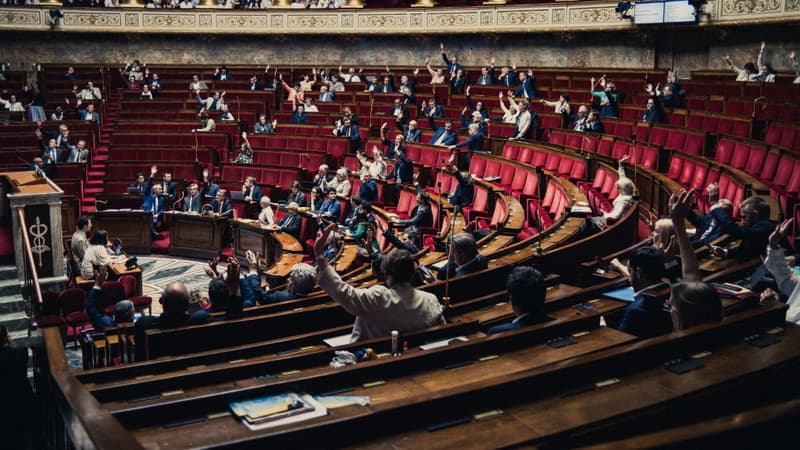This Friday the 31st, the deputies approved in committee the suspension of the pension reform proposed by the Government to escape the censorship of the PS, despite the reluctance of the government sector and a part of the left, which denounces a farce of suspension.
Inserted in the Social Security budget, the article on the suspension of the 2023 reform, which gradually raised the legal starting age to 64 years, was approved by 22 votes to 12. The National Rally and the socialists voted in favor.
Les Républicains and Horizons deputies voted against the suspension. “We cannot make the French believe that they will not have to work more collectively,” defended Justine Gruet (LR).
“There is a majority to repeal it”
Like the Insoumis, for diametrically opposite reasons. LFI “will never vote on any text that provides for a postponement of the retirement age to 64 years,” declared Hadrien Clouet, adding in X: “There is a majority to repeal it. The rest is nonsense.”
Environmentalists abstained, calling for the integration of long careers into the system and different financing channels that do not depend on the insured.
The Renaissance deputies also abstained so as not to hinder the budget “discussion,” according to Annie Vidal. The MoDem was divided between abstentions and votes in favor.
Sandrine Runel (PS) hailed a “first victory”, assuring that the government had committed, upon arriving at the Chamber next week, to integrate through amendments several demands of the opposition: better consideration of “the generation of ’65”, the integration of long careers and the extension to insured persons from Saint Pierre and Miquelon and Mayotte.
The application of the Borne reform is postponed until 2028
“The issue of long races is not a problem for the government,” Sébastien Lecornu assured the National Assembly on Friday.
In its current version, the Government’s plan involves postponing the application of the Borne reform in time, until January 2028, including increasing the number of quarters to contribute in order to begin fully contributing.
This suspension would cost 100 million euros in 2026 and 1.4 billion euros in 2027, according to the government. But according to rapporteur Thibault Bazin (LR), the cost will be “400 million in 2026 and 1.8 billion in 2027”, with long runs and other induced costs that have not been taken into account.
Financing of the suspension would initially be based on supplementary health insurance and pensions, in particular by underindexing pensions in relation to inflation.
Two avenues that provoke the bombardment of the opposition and some deputies from the government camp. And the Prime Minister himself announced on Friday that he was renouncing the freezing of pensions and social minimums.
Source: BFM TV


